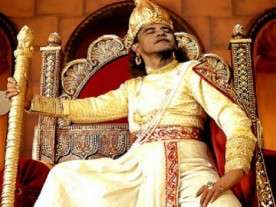The DAPA Debacle Shows Obama Has Failed as a Unifier
The Supreme Court is hearing oral arguments today in the backdrop of a deeply divided country
The Supreme Court today will hear oral arguments in United States vs. Texas, President Obama's DAPA (Deferred

Action for Parents of Americans) immigration executive order that would hand temporary legal status and driving licenses (that follow automatically as per statute*) to about four to five million undocumented parents of American children. The administration has some reason to be pessimistic about the outcome because the justices expanded the scope of their scrutiny beyond what even the 26 state attorney generals asked. The attorney generals, led by Texas, were simply claiming the administration played fast and loose with the Administrative Procedures Act to effectively write a new law. But the Supreme Court asked both sides to also submit briefs on how the order may affect the Take Care Clause of the constitution that requires the president to faithfully execute the laws of the land.
I have taken the position that the president's order is legal and constitutional because he has broad prosecutorial authority to set enforcement priorities on immigration law just as he does on criminal law, especially since the violations far overwhelm the resources available to prosecute them. But his opponents argue that the kind of systematic en masse relief that the president is offering without Congressional authorization is tantamount to writing laws by executive fiat.
We will see in June what the Supreme Court thinks but in the media, battle lines have already hardened along predictable partisan lines, sadly enough. The Wall Street Journal, which is second in none to its commitment on friendly immigration policies, nevertheless wrote an editorial this morning accusing the president of Caesarism. It writes:
The case implicates the Constitution's separation of powers and the basic precepts of self-government. The Anglo-American legal tradition began as the English rebelled in the late 1600s against the Stuart kings who claimed the power to suspend or dispense with laws passed by Parliament. The first two grievances against the Crown in America's Declaration of Independence concerned such "Abuses and Usurpations."
The Framers wrote Article II's Take Care clause to prevent the President from claiming the same lawmaking powers. The executive shall—not "may"—execute Congress's laws faithfully, in one of the Constitution's most specific instructions.
Congress has debated a more generous immigration policy during the Obama years, and all the while Mr. Obama insisted he couldn't act alone. "I am President. I am not king," he told Univision in 2014. "I can't do these things just by myself. We have a system of government that requires the Congress to work with the executive branch to make it happen."
But reform failed, and two weeks after the 2014 midterm election Mr. Obama decided he could act like a legislature: "I take executive action only when we have a serious problem, a serious issue, and Congress chooses to do nothing." He has no such authority.
Meanwhile, The New York Times' ran an oped by former senator Richard Luger defending the order. He writes:
But whether or not you like President Obama's actions, he has operated under longstanding provisions of law that give the executive branch discretion in enforcement. This presidential prerogative has been recognized explicitly by the Supreme Court. Moreover, the nature of immigration enforcement and the resources (or lack thereof) appropriated by Congress necessitate exactly the type of choices that the president has made.
Congress has repeatedly granted the executive branch broad power in enforcing immigration laws. The 2002 law creating the Department of Homeland Security explicitly said the executive should set "national immigration enforcement policies and priorities." The Supreme Court has recognized the leeway Congress gives the executive branch in deportations. In a 2012 majority opinion written by Justice Anthony M. Kennedy and joined by Chief Justice John G. Roberts Jr., the court noted that "a principal feature of the removal system is the broad discretion exercised by immigration officials," including the decision "whether it makes sense to pursue removal at all."
Setting enforcement priorities is vital to the effectiveness of our immigration laws. Congress can't anticipate every situation. This is why the Supreme Court recognized in 1950 that immigration law is an area where "flexibility and the adaptation of the congressional policy to infinitely variable conditions constitute the essence of the program."
Libertarians, it seems to me, are the only honest brokers in this debate, thinking through the issues purely on the merit without regard to partisan politics, which is why they occupy both ends of the issue and everything in between. As I noted, I think the president is acting within his authority. Among the libertarians who agree with me are WaPo's Volokh Conspiracy's Ilya Somin and Jonathan Adler; among those who are torn is Randy Barnett; and among those squarely against the president is Cato Institute's Ilya Shapiro.
I'm umpiring a battle of the Ilyas this Thursday on the order when Shapiro and Somin will hopefully tear each other to shreds. Go here to see more details of the event.
But regardless of whether the president eventually wins or loses in court, he is a massive failure on his own terms. He assumed office thunderously promising to unite the country. Remember his: "There is no white America, there is no black America, there is no red America, there is no blue America, there is only the United States of America."
But seven years later, he hasn't even been able to unite libertarians. Splintering them on an issue on which they are largely on his side and on which they have no partisan axe to grind takes hard work and somehow he managed that. He may or may not be Caesar, but he is definitely no Nelson Mandela.
My piece on why Scalia may have ruled in the administration's favor here and another one examining the legal merits of Obama's order.
* The paranthetical part was added


Show Comments (129)